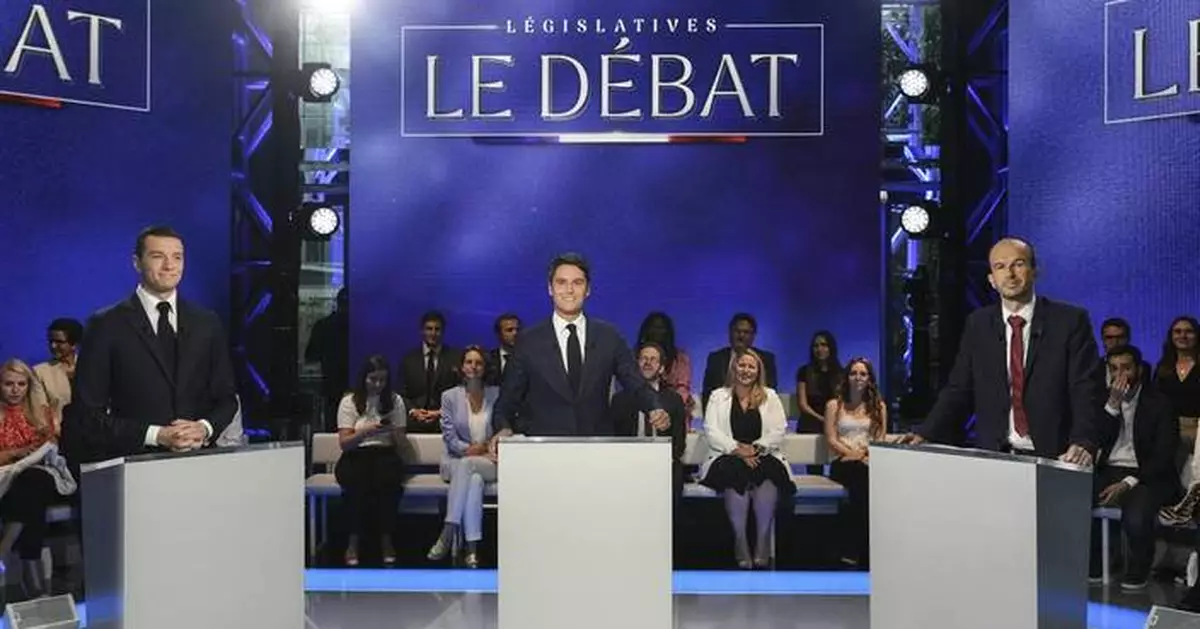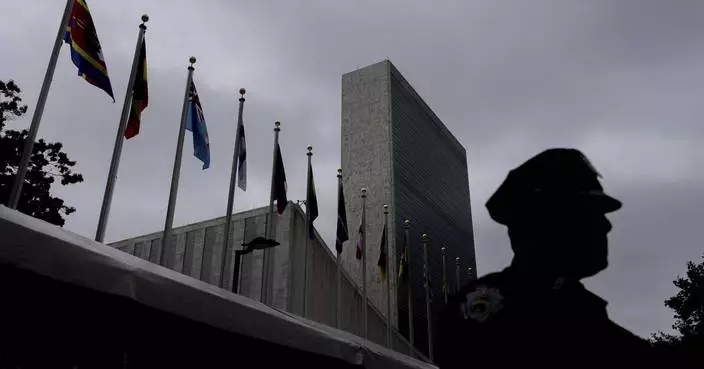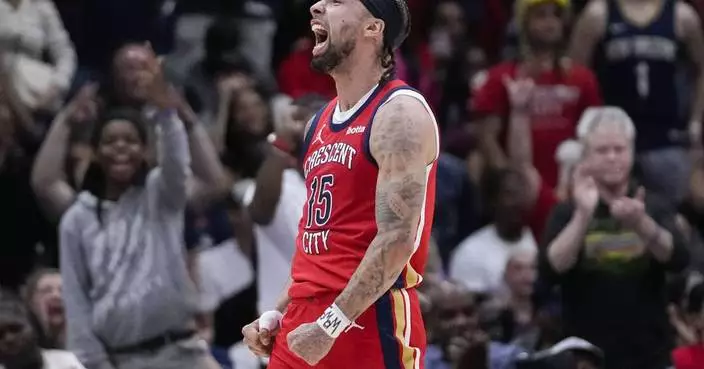PARIS (AP) — France’s government on Wednesday ordered the dissolution of multiple extreme right and radical Muslim groups, four days before the first round of high-stakes legislative elections that may see a surge in support for political extremes.
Snap national elections called by pro-business moderate President Emmanuel Macron have plunged the country into a hasty and disorderly electoral race, in which hate speech is becoming a growing concern.
Interior Minister Gerald Darmanin announced Wednesday that the government ordered the shutdown of several groups peddling extremist hatred. A series of decrees announcing the shutdown outlined investigations into the groups and said they posed risks of violence.
The groups affected include GUD, known for violence and antisemitism. Its members have supported far-right political leader Marine Le Pen in the past.
Le Pen's National Rally party is leading all polls ahead of the two-round elections, June 30 and July 7, while Macron's centrist alliance is lagging far behind. However, the outcome remains highly uncertain due to the complex, two-stage voting system and potential political alliances.
This is not the first time the French government has moved to dissolve groups it believes infringe on security and human rights, but the pre-election timing of Wednesday’s announcement appeared to send a clear message about extremism.
Another targeted group, called Les Remparts, is accused of inciting hate, discrimination and violence toward foreigners and non-white people, according to Interior Ministry decrees reviewed by The Associated Press.
Some members, a decree said, wear a jacket bearing the inscription “White Division'' and the group has offered self-defense trainings. The ministry cites a 2023 attack in which dozens of hooded far-right militants, armed with iron bars, attacked a civil society group at a conference about Palestinians. Some of the attackers had ties with Les Remparts, the decree said.
Another decree targeted a group called Jonas Paris, which it said claims to support France's Muslim community but instead promotes violence, hate and discrimination toward non-Muslims, women and LGBTQ+ people.
Antisemitic and anti-Muslim discourse has also surfaced in the campaign.
Activist group SOS Racisme announced Wednesday it filed a lawsuit seeking to stop the spread of a widely shared video that mocks people of African origin and tells them to ‘’go home.’’ The lawsuit is seeking charges of provocation of racial hatred against the video’s creators.
Noting similar videos that have appeared in Germany, the group said, ‘’these expressions of unbridled racism reflect a climate of the freeing-up of racist speech, fed by the worrying scores of the far right'' in recent elections around Europe.
Facing the prospect that France could elect its first far-right government since the Nazi occupation during World War II, other parties have been scrambling to form alliances and field candidates. The elections were called by Macron earlier this month after his party suffered a crushing defeat in the European Parliament election.
In a TV debate Tuesday night, young and fast-rising National Rally president Jordan Bardella renewed his proposal to abolish free health care for foreigners and toughen regulations around acquiring French nationality.
His proposal to prevent dual citizens from accessing certain “strategic” state jobs in particular attracted the ire of Prime Minister Gabriel Attal, who said it revealed the true objectives of a party that has long been tied to xenophobia and racism.
“The message you are sending is that when we are dual citizens, we are half-citizens, we are not real French people,” Attal said.
Attal suggested the real targets of this measure are not dual citizens with high-level positions, when he said Bardella's party had a Franco-Russian representative in the European Parliament.
Bardella has softened many of the party's hard-line positions, and was put on the spot during the debate over another key issue, the age of retirement. Macron's raised it last year from 62 to 64, prompting months of protests that weakened his government.
The National Rally backs the idea of setting back the retirement age to 62, but Bardella said 42 years of work would be needed for entitlement to a full pension, de facto raising the retirement age for those who started working later in their 20s.
Eric Bompard, of the France Unbowed party, part of a new left-wing coalition, also came after Bardella’s economic program and his proposal to lift taxes for people under 30.
Bompard said the National Rally’s program would contribute to making the rich richer, at the expense of the poorest 30% share of the population, while Attal accused the 28-year-old Bardella of personally benefiting from the measure.
“Why would a 31-year-old laborer pay taxes, while a 29-year-old consultant or trader would stop paying?” Attal asked.
Associated Press writer Sylvie Corbet in Paris contributed to this report.
Follow the AP’s coverage of global elections at: https://apnews.com/hub/global-elections/
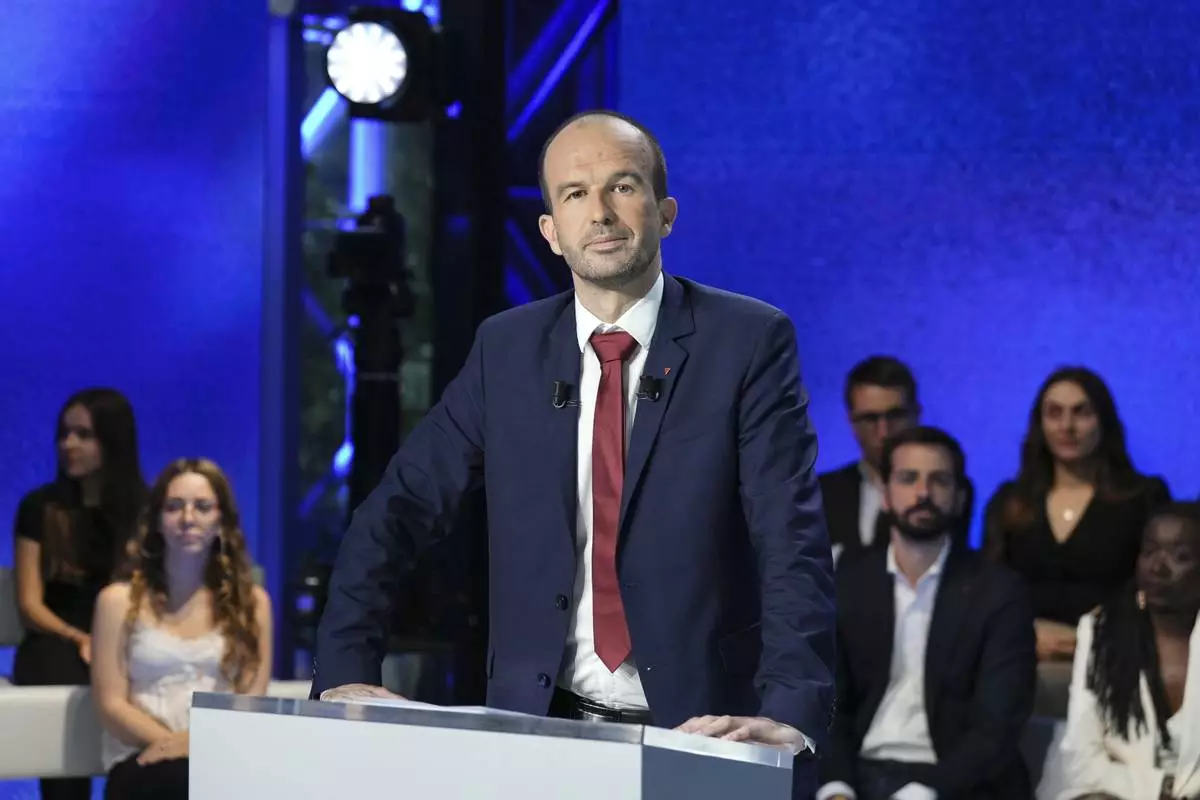
Far-left party La France Insoumise (France Unbowed) member Manuel Bompard poses prior to a debate broadcasted on French TV channel TF1, in Boulogne-Billancourt, outside Paris, Tuesday, June 25, 2024. The two-round parliamentary election will take place on June 30 and July 7. (Dimitar Dilkoff, Pool via AP)
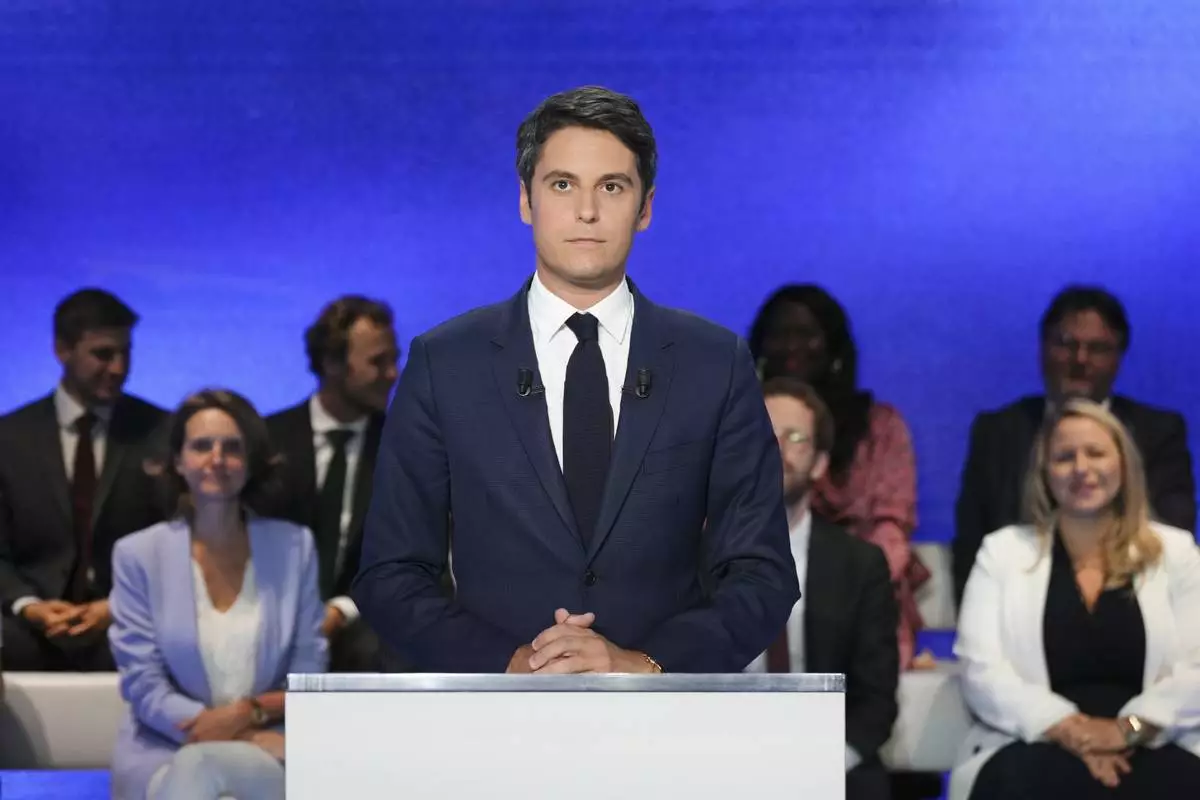
French Prime Minister Gabriel Attal poses prior to a debate broadcasted on French TV channel TF1, in Boulogne-Billancourt, outside Paris, Tuesday, June 25, 2024. The two-round parliamentary election will take place on June 30 and July 7. (Dimitar Dilkoff, Pool via AP)
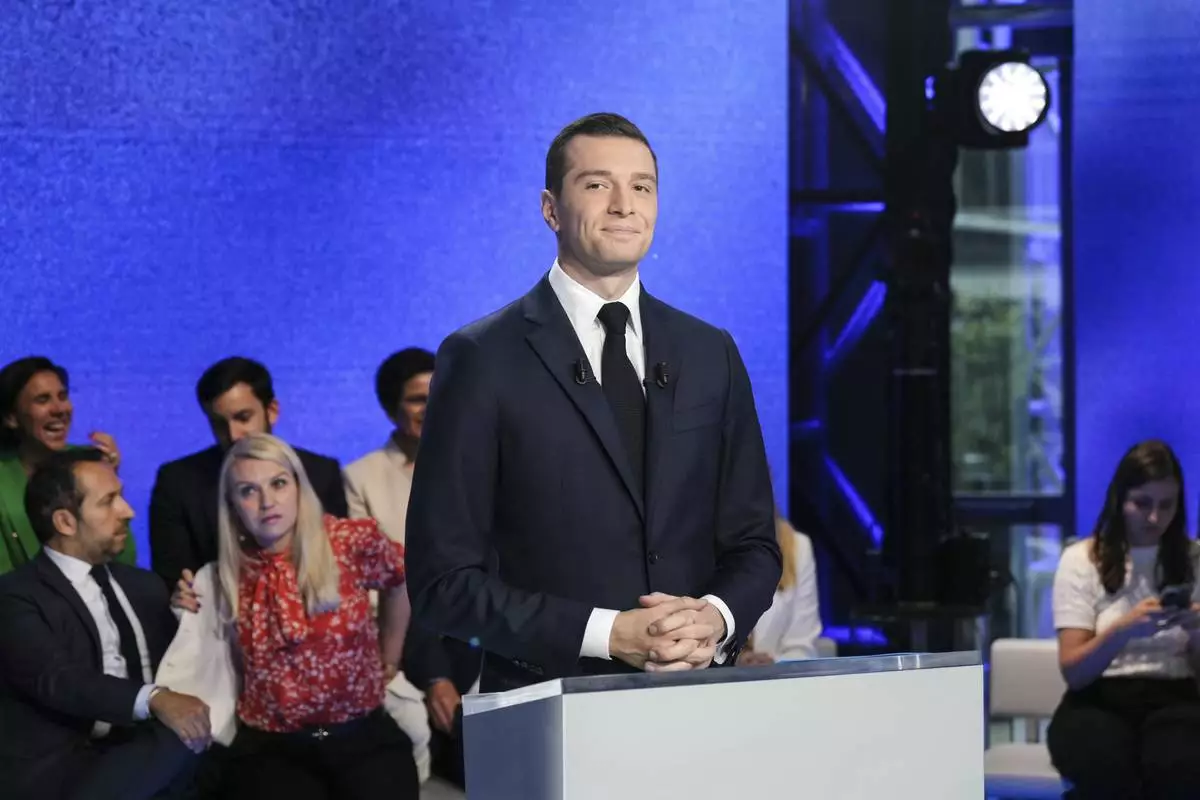
French far-right Rassemblement National (National Rally) party President Jordan Bardella poses prior to a debate broadcasted on French TV channel TF1, in Boulogne-Billancourt, outside Paris, Tuesday, June 25, 2024. The two-round parliamentary election will take place on June 30 and July 7. (Dimitar Dilkoff, Pool via AP)
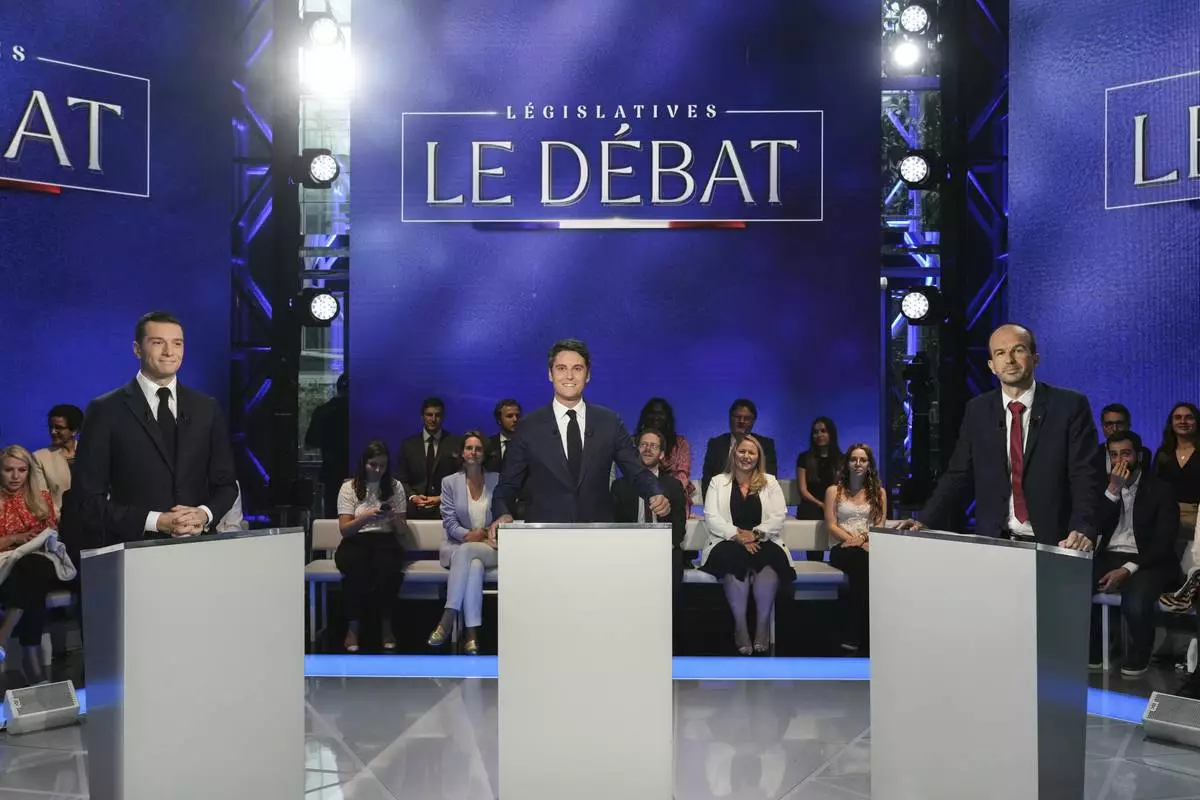
From the left, French far-right Rassemblement National (National Rally) party President Jordan Bardella, French Prime Minister Gabriel Attal and far-left party La France Insoumise (France Unbowed) member Manuel Bompard pose prior to a debate broadcasted on French TV channel TF1, in Boulogne-Billancourt, outside Paris, Tuesday, June 25, 2024. The two-round parliamentary election will take place on June 30 and July 7. (Dimitar Dilkoff, Pool via AP)


